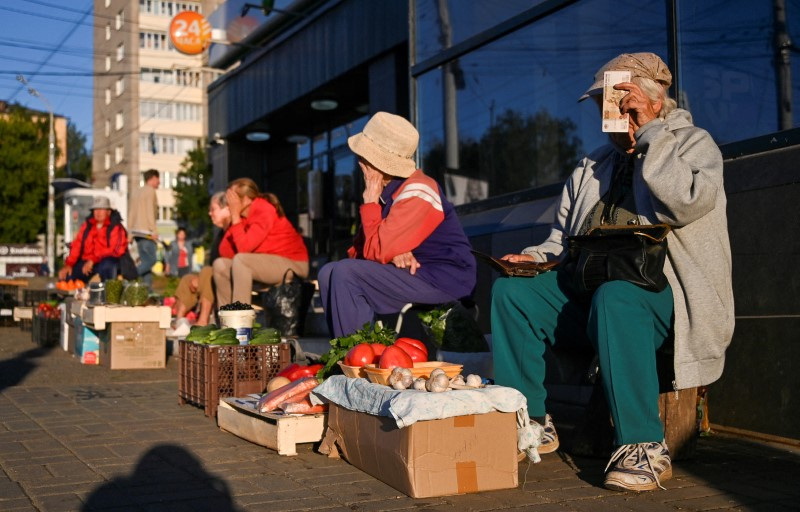By Gleb Bryanski and Darya Korsunskaya
MOSCOW (Reuters) – Leading Russian economists expect inflation in Russia to exceed the central bank’s estimate for this year, increasing the likelihood of another aggressive benchmark interest rate hike next month.
Consumer prices rose by 0.37% in the latest week, according to statistical data, pushing the headline figure since the start of the year to 7.4%, close to the central bank’s full-year inflation estimate of 8.0-8.5%.
“There is a real threat that inflation will exceed the October forecast of the central bank, prompting the regulator to aggressively raise the key rate again in December, this time to 23%,” said Denis Popov from PSB Bank.
Reuters collected the views of 10 economists for this story.
The central bank hiked its benchmark rate to 21% in October, stating that a tight monetary policy was needed to combat inflation. The move prompted a barrage of criticism from business leaders who said it was stifling investment and credit.
The October upward revision of the full-year inflation estimate was the third publicly known this year by the central bank.
Some critics argued that the monetary measures had little or no impact on inflation while dampening growth and leading to stagflation, a phenomenon that combines a high inflation rate with economic stagnation.
Dmitry Polevoy from Astra Asset Manager said that if the central bank’s rate-setting meeting took place tomorrow, a hike to 23% would be certain.
“Given the current macroeconomic inputs, everything looks extremely unfavorable for the central bank,” Polevoy said, predicting full-year inflation to exceed 9%.
Inflation was fueled by rises in prices for potatoes, butter, sunflower oil, dairy products, and imported fruits. Prices for potatoes, a staple food for many Russians, have risen by 74% since last December.
The central bank, in its reports, blamed bad weather, which affected crops, poor logistics, a weakening rouble, and increased costs, such as for raw materials and labor, for high inflation.
The government, on its part, is trying to increase imports of some key food products, like butter, lower export barriers, limit or ban some exports, and help improve logistics to contain price growth. Despite this concerted effort, inflation keeps rising.
“The current growth trajectory is unfolding above the forecast of the Bank of Russia,” said Renaissance Capital analysts.
They added that if inflation is above 9% by mid-December, the regulator will respond by hiking the rate to 23%.ond by hiking the rate to 23%.

